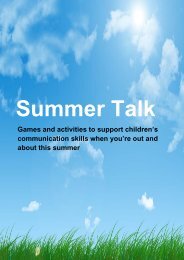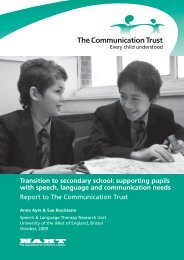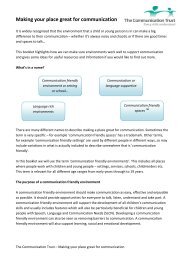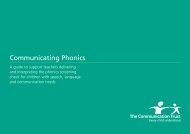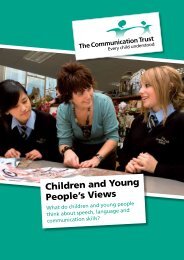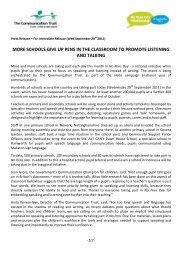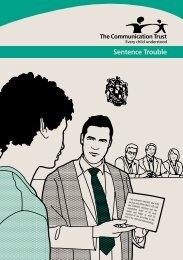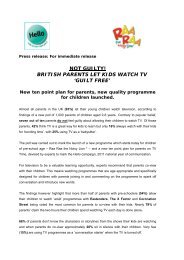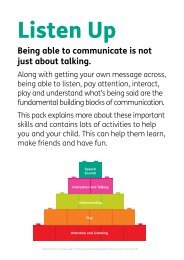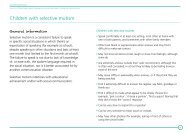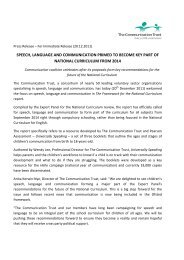Don't Get Me Wrong - The Communication Trust
Don't Get Me Wrong - The Communication Trust
Don't Get Me Wrong - The Communication Trust
You also want an ePaper? Increase the reach of your titles
YUMPU automatically turns print PDFs into web optimized ePapers that Google loves.
Mollie<br />
Mollie was initially described as language delayed, although she also had difficulty<br />
with fine motor skills; jigsaws and cutting were very difficult. By the time she started<br />
primary school she had problems with speech, writing, dressing and cutting and she<br />
was diagnosed with developmental co-ordination disorder, or<br />
dyspraxia.<br />
As her language began to develop she was still difficult<br />
to understand, because she missed off word endings<br />
such as plurals and past tenses. She also had difficulty<br />
pronouncing words with three syllables or more.<br />
Her peers soon overtook her in school as she had<br />
literacy difficulties and found joining in with discussions<br />
hard. She was moved to a language unit when she was<br />
eight as her language was developing slowly and in an<br />
unusual way, indicative of SLI.<br />
Her interaction difficulties became more obvious as she<br />
got older, she became increasingly socially isolated and<br />
her interests narrowed in comparison to her peers. By<br />
the time she moved to secondary school an additional<br />
diagnosis of ASD seemed appropriate.<br />
What helps Mollie<br />
Mollie still needs time to help her process language<br />
and think about what she wants to say. She will need<br />
additional support to understand and use language to<br />
learn. She also needs guidance from adults how to talk<br />
and interact with other pupils at school.<br />
Don’t <strong>Get</strong> <strong>Me</strong> <strong>Wrong</strong> 29




